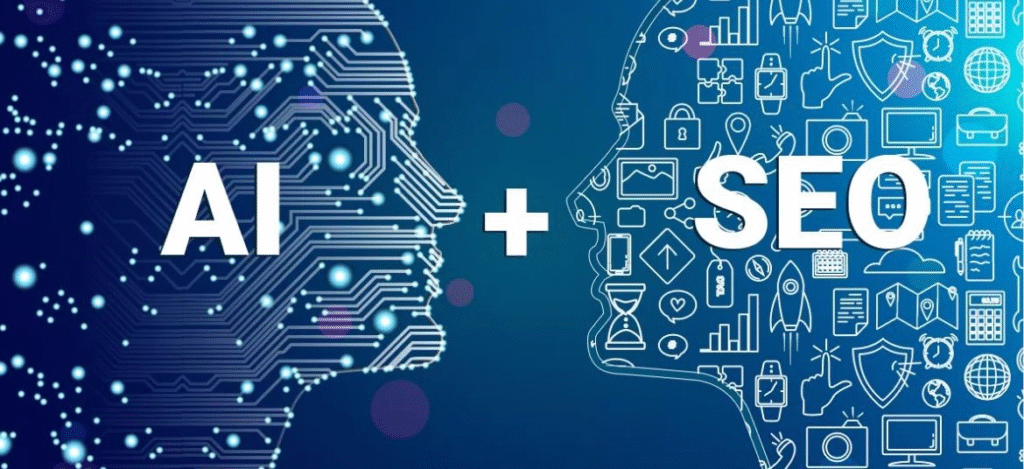The world of digital marketing is undergoing a transformational change, operated by large -scale artificial intelligence (AI). AI SEO is no longer a future concept – it is actively shaping how businesses today look for search engine adaptation. Traditional SEOs, focused on keywords and backlinks, are developing in a more intelligent, user-centric practice. The AI allows the search engine to understand the user’s intentions more accurately, assess the quality of the material and distribute the relevant results efficiently.
Since online visibility becomes an important factor for professional success, understanding the Role of AI SEO is essential for the oppressive who remains competitive. This article shows how AI is changing the SEO, it presents challenges, and strategies to prepare for the AI-run future.
Understanding The Role of AI in SEO

AI takes advantage of artificial intelligence and machine learning to adapt to SEO websites more effectively. Search engine content such as Google uses AI to evaluate relevance, user engagement and website authority. Tools such as RankBrain and BERT allow search engines to process complex questions, understand natural language and provide highly relevant discovery results.
AI also automates repetitive SEO tasks, such as keyword analysis, content optimization, and performance monitoring. This helps marketers focus on strategy and creativity while ensuring their SEO campaigns remain effective in an AI-driven landscape.
How AI’s Impact is Changing SEO Executions?
AI is reshaping SEO strategies across multiple areas:
A. Keyword Research – Smarter
Traditional Keyword Research Search depends on quantity and competition metrics. AI SEO Tools now analyze the user’s intentions, relevance and search trends to suggest long-tail keywords and topic clusters. This clever approach aligns the materials that users are actively searching for, increasing the possibility of high ranking.
B. Improved Content Creation
AI-operated platforms such as Chatgpt, Jasper, and Writesonic help content creators in producing seo-friendly materials. By analyzing top-ranking content, AI tools optimize articles, meta descriptions, and headings for better readability and relevance. AI SEO ensures that the content is not only keyword-optimization, but also attractive and official.
C. Personalized Experience
Personalization is central to modern SEO. AI SEO enables marketers to deliver content tailored to individual user behavior, preferences, and search history. Personalized experiences lead to longer engagement, reduced bounce rates, and improved rankings, making them crucial for competitive SEO strategies.
D. Predictive SEO
Predictive SEO uses AI to forecast trending topics, seasonal search behavior, and emerging opportunities. This allows marketers to create content proactively, stay ahead of competitors, and capture high-value traffic. AI SEO transforms search optimization from reactive to proactive, ensuring businesses can capitalize on upcoming trends.
Google’s AI Algorithm Updates
Google continuously integrates AI into its algorithm. Updated search engines such as BERT and MUM are able to better understand the natural language, reference and multilingual questions.
For AI SEO, this means that traditional strategies such as keyword stuffing or low-quality backlink are no longer effective. Success now depends on high quality materials, relevance and a strong understanding of the user’s intentions.
Tech SEO With AI
Technical SEO also benefits from AI progress. AI-operated equipment can:
- Conduct the broad site audit to identify errors, broken links and performance issues.
- Adapt the structured data and skimmer markup for rich snippets.
- Monitor the core web vital in real time to complete Google’s performance benchmark.
The AI SEO in technical practices ensures that websites are adapted, user-friendly and search engines without manual intervention.
Voice Search and AI
The rise of voice-active devices such as Siri, Alexa and Google accessories has changed the discovery behavior. The discovery of voice is long and more conjunct.
AI SEO helps to understand natural language questions, enables brands to adapt to voice search:
- Long-tail, using question-based keywords.
- Creating materials that answer specific user questions.
- Applying structured data for painted snippets.
Optimizing for voice search increases engagement and ensures visibility on mobile and smart devices.
Visual & Video Search Optimization
AI also provides strength to visual and video search, allowing users to search with images or videos instead of text. Platform search behavior such as Google lens and YouTube AI recommendations are redefined.
- To take advantage of AI SEO for visual and video search:
- Use Alt text and descriptive titles for images.
- Add video tape and structured metadata.
- Ensure high quality views to attach users.
Visual Search opens new opportunities to rank in customization search results and attract the user’s attention.
Challenges and Considerations
While SEO provides powerful benefits, it comes with challenges:
- Dependence on AI can reduce originality and authenticity.
- Continuous algorithm updates require continuous monitoring.
- Data privacy and ethical concerns arise as AI analyzes user behaviour.
Balancing AI automation with human creativity is important to maintain quality, trust and effectiveness in SEO campaigns.
How to Prepare Your SEO Strategy For an AI Future
Businesses can future-proof their SEO strategies by:
- Focusing on high-quality, authoritative content aligned with user intent.
- Leveraging AI SEO tools for keyword research, content creation, and technical optimization.
- Optimizing for voice, visual, and video search.
- Monitoring AI-driven algorithm updates and adjusting strategies proactively.
- Prioritizing personalization and user experience.
- Combining human creativity with AI efficiency for maximum impact.
By preparing for AI-driven SEO, businesses can improve rankings, engagement, and conversions.
Conclusion
The future of SEO is intrinsically tied to AI. From smarter keyword research and predictive analytics to personalized experiences and voice search optimization. AI SEO is transforming how businesses connect with audiences online.
Success in this landscape requires continuous adaptation, a balance of human creativity and AI automation, and a focus on user-centric strategies. By embracing AI SEO, businesses can not only improve their rankings but also deliver engaging, meaningful, and personalized experiences that drive long-term growth.